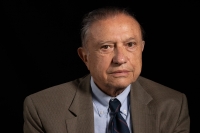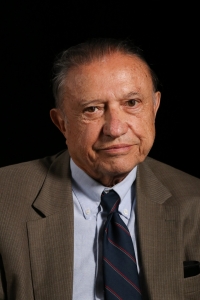My father was persona non grata, a nobody, until his death. He only appeared on the front page of Rudé právo (The Red Right) newspapers the day of his funeral

Stáhnout obrázek
Virologist Karel Raška was born on 26 May 1939 in Prague in the family of a later well-known epidemiologist Karel Raška senior and a pharmacologist Helena Rašková. His father was in charge of the battle against the typhoid fever epidemic in Terezín in May 1945, he was in charge of the infectious disease section of the World Health Organization in the 1960s and he worked out a plan to eradicate smallpox. The plan was successfully finished, however without the participation of Karel Raška senior who was removed from Geneva in 1970 after the takeover of the normalization politicians. Karel Raška junior did not consider other than scientific career thanks to his parents’ influence. He studied at the Faculty of Medicine and he worked at the Institute of Organic Chemistry and Biochemistry under Professor František Šorm. He completed a study programme at Yale University in the second half of the 1960s and he became a candidate for membership in the Czechoslovak Communist Party. He spent the time of Prague Spring with joy but also concerned that the liberation process would be suppressed soon. That is why he arranged exit visas for his whole family in advance and when the Invasion of the Warsaw Pact troops occurred on 21 of August 1968, they left for Vienna the same day. He started to work at American University in New Jersey as soon as in October 1968. He could continue his professional career there, he focused on the study of molecular virology. He was chairman of the Society of Arts and Sciences and he is one of the founders of Comenius Academic Club.

